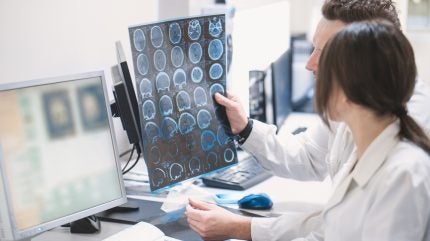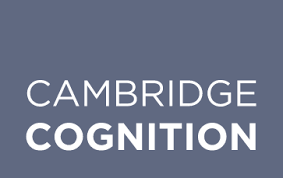
To date, no drugs have been successfully approved for the cognitive symptoms of schizophrenia, despite the impact of these symptoms on patient function. Approaches such as patient stratification, and the selection of sensitive measures of cognition which reduce inter-rater reliability offer improvements, which may help to detect pro-cognitive drug signals. Advances in digital technologies offer opportunities to enhance clinical trial sensitivity, detect baseline impairment and support patient stratification.
Cognitive assessment methods in CIAS trials
Measuring treatment efficacy for CIAS has traditionally been carried out with paper and pencil-based cognitive assessments1. However, these assessments are time-consuming, burdensome, require in-person clinic visits, and are vulnerable to administration error and increased variability due to rater and site experience in the administration and scoring of complex instruments. This increased variability may reduce the ability to detect drug-related changes in performance.
Digital assessment solutions can help to overcome the limitations of traditional outcome measures to assess treatment effects and associated clinical outcomes more directly and objectively. CANTAB cognitive assessments, one of Cambridge Cognition’s key products, deliver brief, automated, and standardised cognitive tests to optimise signal-to-noise ratio whilst reducing patient burden.
Furthermore, these assessments provide automated administration and scoring of tasks, which has the potential to reduce inter-rater reliability. These assessments provide broad coverage across cognitive domains and are sensitive to cognitive impairment in schizophrenia2,3, neurobiology4, and treatment response5 in patients with schizophrenia.
While the majority of clinical trials for CIAS have traditionally adopted conventional protocol designs with an initial baseline assessment, randomisation into treatment or placebo groups, and subsequent evaluations at the mid and end points of the trial, with a longer-term follow-up time point, digital technologies offer opportunities to enhance clinical trial sensitivity by increasing the frequency of measurement and taking assessments outside of the clinic.
Introducing user-friendly platforms like smartphones, wearable devices or remote web-based cognitive testing can provide more nuanced insights into treatment efficacy, not only on cognitive performance but also on clinical and functional symptoms associated with schizophrenia. By implementing an increased sampling frequency, such as daily cognitive data collection with brief assessments (e.g., 90-second tasks on a smartphone), trial sensitivity to treatment effects can be amplified by averaging cognitive performance across numerous evaluations, reducing measurement error, and accounting for day-to-day variability in performance.
Delivery of tasks or short self-report measures through patients’ smartphones or wearable devices has become a more common feature of clinical trials. Popularity further increased in response to the COVID-19 pandemic, where remotely completed assessments were necessary in the context of social distancing policies6.
Capturing other symptoms of schizophrenia
While active data collection involves participants engaging directly with an assessment, passive data collection continuously monitors physiological and behavioural parameters without requiring active participation. Using wearable technology or smartphones, for example, enables the measurement of various factors that may influence cognitive performance, such as time of day effects, sleep disturbance, circadian rhythms, and mood fluctuations. This can allow for a more detailed and accurate understanding of treatment effects, as changes in cognitive performance can be evaluated in relation to these contextual factors.
In addition, advances in natural language processes offer the potential to reliably capture and assess speech and language. Alterations in speech and language have long been considered a hallmark feature of schizophrenia, including disorganised or impoverished speech, reduced speech fluency, and abnormal prosody7. These alterations can significantly interfere with patients’ ability to communicate effectively.
The effective use of language requires intact cognitive processing through the coordinated use of memory and attention8. As such, speech and language analysis can bring an additional layer of understanding to cognitive assessments. Another product offered by leading company Cambridge Cognition can provide a detailed assessment of both content (what is said) and acoustic properties (how it is said) of speech by leveraging current advances in natural language and signal processing to provide an automated, low-burden and objective way to characterise these symptoms.
Innovations in study design
It has been suggested in the literature that heterogeneity in the degree of cognitive impairment at baseline may limit the ability to detect treatment effects by failing to identify participants who could benefit from an intervention9, and have suggested that stratification may help to address these issues. Recently some studies have chosen to use cognition as an exploratory endpoint and to examine the potential cognitive benefit of drug treatment in the subset of schizophrenia patients that have a baseline cognitive deficit prior to treatment initiation.
In a recent post-hoc analysis10, a short battery of CANTAB cognitive tests was used to identify patients with schizophrenia who had a cognitive deficit at baseline, and to show that these patients had a significant improvement in cognition over five weeks with drugs. Further research on this approach to capturing cognitive performance is warranted, but this marks an exciting time in the development of new treatments for schizophrenia, with both innovative study designs and data capture technology, and new mechanisms of action being explored.
Digital assessment technologies continue to hold the potential to revolutionise pro-cognitive trials in schizophrenia, as well as many other therapeutic areas. These advancements could continue to streamline data collection, improve trial accuracy, and ultimately accelerate the development of effective treatments to address the unmet patient need to improve cognition and daily functioning.
References
- Keefe RSE, Harvey PD. Cognitive impairment in schizophrenia. Handb Exp Pharmacol. 2012;11–37.
- Fatouros-Bergman, H., Cervenka, S., Flyckt, L., Edman, G., & Farde, L. (2014). Meta-analysis of cognitive performance in drug-naïve patients with schizophrenia. Schizophrenia Research, 158(1-3), 156-162. DOI: 10.1016/j.schres.2014.06.034.
- Kruiper, C., Vermeiren, A., Kemperman, H., Nolen, W. A., Begemann, M. J. H., & Sommer, I. E. (2019). Transcranial direct current stimulation for negative symptoms in schizophrenia: A meta-analysis. Psychiatry Research, 278, 133-137. DOI: 10.1016/j.psychres.2019.04.032.
- Wannan, C. M. J., Bartholomeusz, C. F., Cropley, V. L., Di Biase, M. A., Scott, A. M., Thomas, E. A., & Seal, M. L. (2019). Longitudinal changes in cortical thickness and brain volume in established schizophrenia. Psychological Medicine, 49(3), 501-511. DOI: 10.1017/S0033291718001176.
- Lees, J. A., Simons, J. S., Schwarzbauer, C., & Rosenthal, C. R. (2017). Differential neural mechanisms for remembering when to act and when not to act. NeuroImage, 157, 358-367. DOI: 10.1016/j.neuroimage.2017.06.004.
- Harvey, P. D., Khan, A., Atkins, A. S., & Keefe, R. S. E. (2021). The impact of the duration of untreated psychosis on cognitive performance in patients with schizophrenia. Schizophrenia Bulletin, 47(4), 1005-1013. DOI: 10.1093/schbul/sbaa177.
- Hitczenko, P., Shynkaruk, O., Pankevich, D., Turi, S., & Bachman, P. (2020). Neuroimaging correlates of cognitive decline in schizophrenia: A systematic review and meta-analysis. Frontiers in Psychiatry, 11, 582131. DOI: 10.3389/fpsyt.2020.582131.
- Lin, Y., Chan, S. H., Peng, Z., & Chen, X. (2020). Multivariate meta-analysis of brain morphometric abnormalities in schizophrenia: A comparison of treatment-resistant and treatment-responsive patients. Neuroscience and Biobehavioral Reviews, 116, 331-339. DOI: 10.1016/j.neubiorev.2020.06.025.
- Cotter J, Granger K, Backx R, Hobbs M, Looi CY, Barnett, JH. Social cognitive dysfunction as a clinical marker: A systematic review of meta-analyses across 30 clinical condition. Neuroscience and Biobehavioral Reviews 2018; 84(0), 92-99.
- Horan et al 2024 ISCTM.


